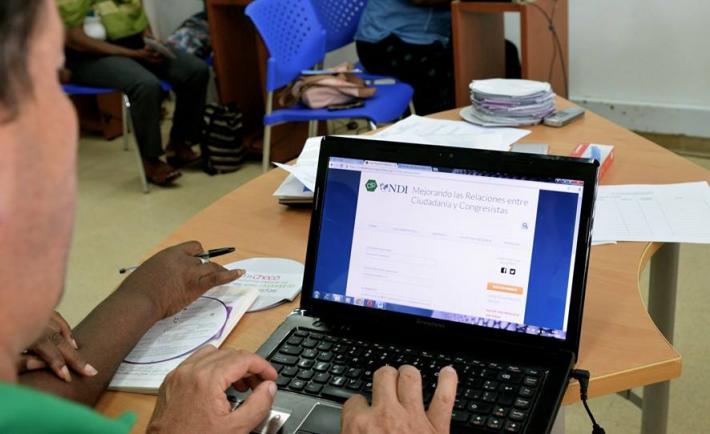Today is International Day of Democracy, a day meant to inspire reflection and celebration of the principles of democracy worldwide. This year’s theme, “Space for Civil Society,” serves as a reminder that a strong and active civil society is necessary for resilient democracy.
This year’s theme is also a reaction to the fact that civil society faces serious challenges globally. Since the early 2000s, authoritarian regimes have used new methods to limit the ability of civil society to protect the rights of citizens, demand accountability from government and engage in public policy. These limitations extend to the Internet and social media; authoritarian regimes continue to curtail political speech and monitor political dissent online.
But just as autocratic regimes are imposing these limitations, civil society is adopting new technologies and using open government data to create new civic space and work in parallel with the interests of open, inclusive government. NDI is supporting these efforts by assisting civil society groups in the creation of international norms and standards for legislative openness and open election data.
International platforms, such as the Legislative Openness Working Group of the Open Government Partnership (OGP), which NDI co-chairs with the Congress of Chile, have brought together elected officials with civil society groups to develop tools that help advance government accountability. In Georgia, the Inter-Factional Working Group on Legislative Openness has used the OGP framework to develop an action plan in collaboration with civil society to improve the transparency of parliament. On this International Day of Democracy, the Parliament of Georgia is hosting an international conference, as part of the Global Legislative Openness Week, to share its experience with other legislatures throughout the region.
Open election and parliamentary data has also become a rallying point for civil society groups around the world. In Kenya, for example, civil society, the technology community and election officials recently created a joint task force to make open election data a priority ahead of Kenya’s 2017 polls, drawing on NDI’s Open Election Data Initiative.
While open data is creating a path to accountability, it is important to remember that these tools can only be meaningful to the average citizen or to those in government when it informs dialogue and deliberation. That is why civil society groups must also play the role of data interpreter: processing, visualizing and communicating open data so that it can be understood and used to enhance the engagement of citizens, particularly women and youth who are disproportionately impacted by a lack of transparency. Technology can help facilitate data analysis, but it is ultimately up to civil society to utilize open data for democratic development.
With our partners, NDI is helping pioneer the use of international norms, open data and technology to create new space for civil society, and will continue to support the innovative work of citizen groups in this area. But in order to ensure long-term democratic resilience, these tools must help create a precedent so that space for civil society not only exists, but is also occupied effectively and constructively.

